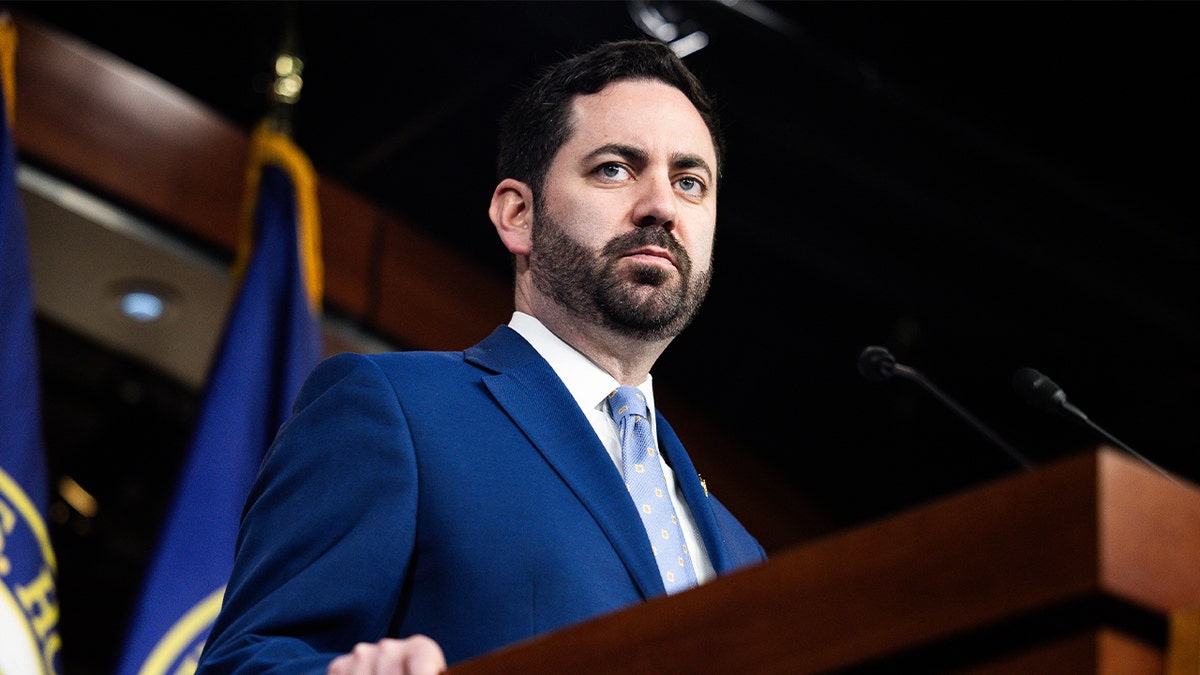GOP rebel mutiny threatens to derail Trump’s ‘big, beautiful bill’ before key committee hurdle
President Donald Trump’s “big, beautiful bill” appears to be in peril as of late Thursday afternoon, ahead of a critical meeting by the House Budget Committee to bring the legislation close to a House-wide vote.
At least three Republicans on the committee are expected to vote against advancing the bill, a multitrillion-dollar piece of legislation aimed at enacting Trump’s priorities on tax, the border, immigration, defense, energy and raising the debt limit.
Republican Reps. Andrew Clyde, R-Ga., and Ralph Norman, R-S.C., both told Fox News Digital they would vote against the bill in committee in its current form.
Norman said Republican Rep. Chip Roy, R-Texas, would also vote against the bill. Roy himself signaled he was opposed to the legislation both on X and in comments to reporters.
ANTI-ABORTION PROVIDER MEASURE IN TRUMP’S ‘BIG, BEAUTIFUL BILL’ COULD SPARK HOUSE GOP REBELLION

“Right now, the House proposal fails to meet the moment. It does not meaningfully change spending (Medicaid expansion to able bodied, [Inflation Reduction Act] subsidies). Plus many of the decent provisions and cuts, don’t begin until 2029 and beyond. That is swamp accounting to dodge real savings,” Roy wrote on X Thursday.
Other members of the committee also suggested they had concerns.
Republican Rep. Josh Brecheen, R-Okla., told Fox News Digital he wanted the Friday morning meeting delayed.
And Rep. Glenn Grothman, R-Wis., a rank-and-file member who is not known for defying House Republican leaders, said the legislation did not seem “sincere” and would not reveal how he will vote.
With one expected absence for Republicans on the House Budget Committee, the GOP can only afford one “no” vote to still advance the legislation.
Once the bill is passed through the House Budget Committee, it must then come before the House Rules Committee — which sets terms for debating the bill House-wide — before it is weighed by all House lawmakers.
Speaker Mike Johnson, R-La., has said he wants the legislation to pass the House by Memorial Day.

“I think we’re on schedule,” Johnson told reporters leaving a conference-wide meeting on the bill Thursday afternoon.
He also said he was confident Budget Committee Republicans could advance the bill Friday.
“I’m talking to everybody and I think we’re gonna get this thing done on the schedule that we proposed,” Johnson said in response to conservative concerns.
Both Norman and Roy have complained that the legislation’s provisions aimed at curbing abuse of the Medicaid system and rolling back ex-President Joe Biden’s green energy subsidies in the IRA did not go far enough.
Timing is among their key concerns on both fronts. Conservatives have issues with Medicaid work requirements not going into effect until 2029, the end of Trump’s term. They also questioned what they saw as a delay in phasing out green energy tax credits in the Inflation Reduction Act.
“I questioned the timing on work requirements, I questioned the IRS phase-outs. I didn’t get an answer on that,” Norman told reporters after the Thursday afternoon meeting. “My point is, we need to have answers before it hits the floor.”
Clyde told Fox News Digital of his opposition, “I’m a NO on advancing the budget reconciliation bill out of the Budget Committee in its current form.”
“I’m actively involved in negotiations to improve this package, and I’m hopeful that we will do so quickly in order to successfully deliver on President Trump’s agenda for the American people,” he said.
Another issue at hand involves continued tensions over state and local tax (SALT) deductions, which primarily affect high cost-of-living states — and Republicans representing critical swing districts within blue states.
The Trump bill currently would raise the SALT deduction cap from $10,000 for single and married tax filers to $30,000 – a number that’s not enough for a group of moderate House Republicans that’s large enough to sink the final bill.
Conservative fiscal hawks have said higher SALT deduction caps must be paired with deeper spending cuts.
BROWN UNIVERSITY IN GOP CROSSHAIRS AFTER STUDENT’S DOGE-LIKE EMAIL KICKS OFF FRENZY
“SALT is a pay-for,” Rep. Mike Lawler, R-N.Y., who is not on the budget committee, said in response to conservatives asking for offsets.
He pointed out that SALT deduction caps would be eliminated entirely if Trump’s 2017 Tax Cuts and Jobs Act (TCJA), which Republicans want to extend permanently via this bill, is allowed to expire.
“The fact is, if the tax bill expires, the cap on SALT expires, which means to goes back to unlimited. So any cap is a savings within the bill,” Lawler said. “So this idea that we need to find a pay-for, that’s not an us problem. That’s other people’s problems.”
But Rep. Nick LaLota, R-N.Y., another SALT Caucus member, signaled he would be ok with moving up the deadline on Medicaid work requirements in exchange for raising the SALT deduction cap.
House GOP leaders are expected to continue negotiating with both groups, however.
Both Johnson and House Majority Leader Steve Scalise, R-La., said they expected the Budget Committee meeting to go on as planned.

House Budget Committee Chairman Jodey Arrington, R-Texas, however, seemed less optimistic.
“We’ll see,” he said when asked about the Friday meeting, adding the likely “no” votes are “potentially enough to delay it.”
Congressional Republicans are moving President Donald Trump’s agenda via the budget reconciliation process.
CLICK HERE TO GET THE FOX NEWS APP
By lowering the Senate’s threshold for passage down to the House’s own simply majority requirement, it allows the party in control of both chambers and the White House to pass vast pieces of legislation while entirely sidelining the minority – in this case, Democrats.
Eleven House committees have cobbled together individual portions of the bill, which will be put back into a framework that the House Budget Committee will consider Friday morning.
Then it must head to the Senate, which will likely amend the bill, which then must sync up with the House before arriving on Trump’s desk for a signature.
